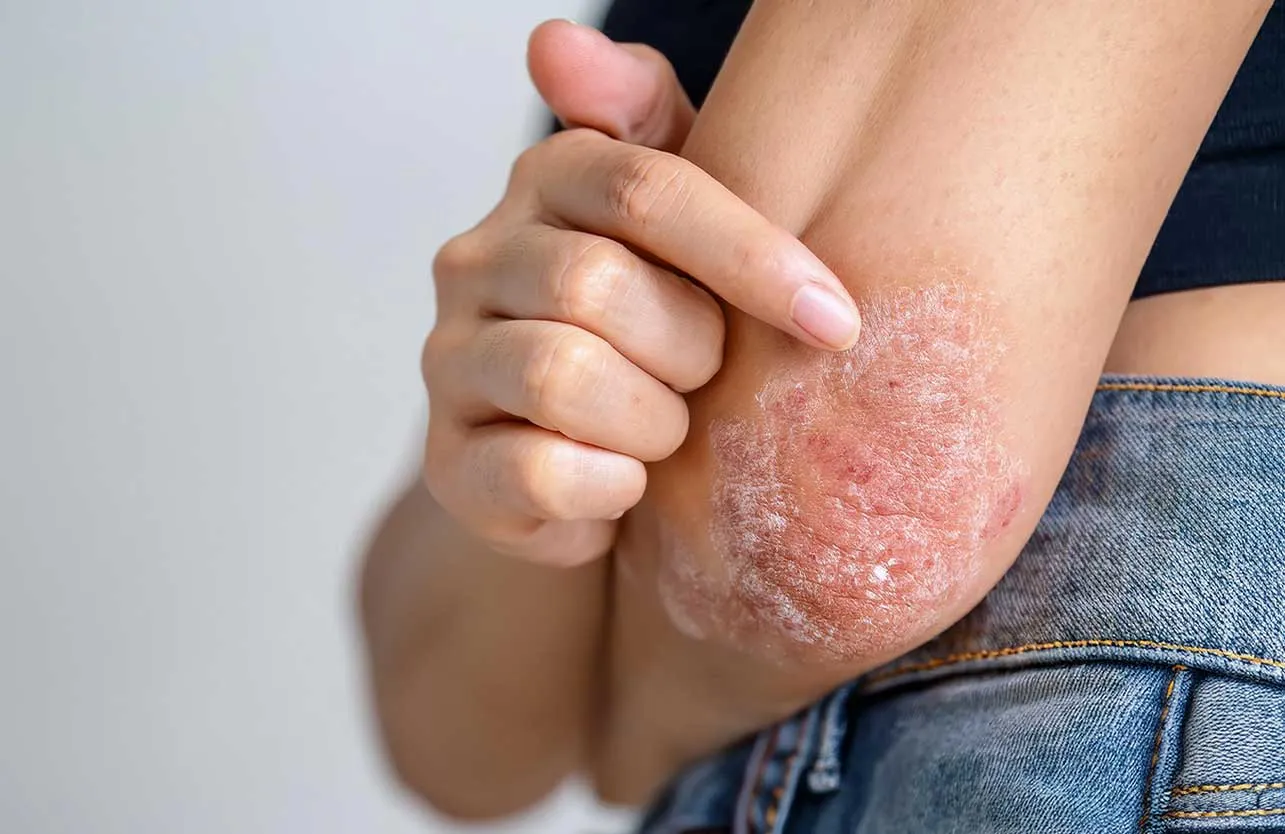New Treatment Methods for Psoriasis
What Is Psoriasis?
Psoriasis is a chronic, inflammatory skin condition characterized by accelerated skin cell turnover due to abnormal immune responses. The most common type is plaque psoriasis, but guttate, pustular, and erythrodermic forms also exist.
Treatment plans are based on severity, extent, and impact on quality of life.
Traditional Approaches: The Foundation of Psoriasis Management
For decades, the following treatments have been widely used:
- Topical corticosteroids and vitamin D analogs
- Phototherapy (UVB or PUVA)
- Systemic agents: methotrexate, cyclosporine, acitretin
While effective for some, these options may be insufficient in moderate to severe cases, where modern, targeted therapies offer more promising results.
Next-Generation Therapies: A New Era in Psoriasis Treatment
1. Biologic Agents
Biologics are genetically engineered protein-based drugs that target specific immune system pathways involved in psoriasis.
Commonly Used Biologics:
|
Drug |
Target |
Brand |
Administration |
|
Etanercept |
TNF-alpha |
Enbrel® |
Subcutaneous, weekly |
|
Adalimumab |
TNF-alpha |
Humira® |
Subcutaneous, biweekly |
|
Secukinumab |
IL-17A |
Cosentyx® |
Subcutaneous, monthly |
|
Ixekizumab |
IL-17A |
Taltz® |
Subcutaneous |
|
Ustekinumab |
IL-12/23 |
Stelara® |
Subcutaneous, every 12 weeks |
|
Risankizumab, Guselkumab |
IL-23 |
Skyrizi®, Tremfya® |
Subcutaneous |
Benefits:
- Selective, targeted immune suppression
- Fewer systemic side effects
- Long-lasting effects
- Effective for both skin plaques and psoriatic arthritis
Latent infections (e.g., TB or hepatitis) must be ruled out before starting biologics.
2. Small Molecule Inhibitors
These are non-biologic, targeted oral or topical therapies with fewer long-term risks.
a) Apremilast (Otezla®)
- A PDE4 inhibitor taken orally
- Suitable for mild to moderate psoriasis
- Acts without causing broad immunosuppression
b) Topical Roflumilast & Tapinarof
(New-generation topicals)
- FDA-approved steroid-free creams
- Anti-inflammatory and effective for long-term use
- Safe for sensitive areas like the face or folds
3. JAK Inhibitors (Janus Kinase Inhibitors)
A newer class that modulates immune signaling:
- Includes drugs like Tofacitinib and Upadacitinib
- Primarily used in psoriatic arthritis cases
- Available in oral or topical forms
- Require monitoring due to systemic immunomodulatory effects
Combination and Supportive Therapies
Modern treatment often involves combining therapies for better results:
- Biologics + topical agents
- Phototherapy + apremilast
- Minimal corticosteroid + emollient
- PRP or mesotherapy (experimental adjuncts)
Lifestyle and Nutritional Support
Beyond medication, lifestyle interventions can enhance treatment effectiveness:
- Omega-3 fatty acids: Anti-inflammatory properties
- Gluten-free diet: For patients with gluten sensitivity
- Weight reduction: Lowers disease severity and improves biologic response
- Quit smoking and alcohol: Shown to reduce flare frequency
Studies indicate that lowering BMI improves response to biologic therapy.

